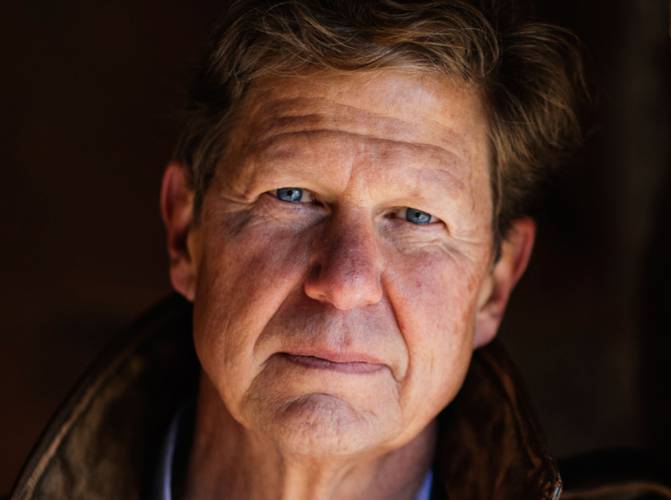Column: ‘Christian Right’ is an oxymoron

Randall Balmer. Copyright (c) Valley News. May not be reprinted or used online without permission. Send requests to permission@vnews.com.
| Published: 09-11-2023 1:28 PM |
Is there anything discernibly “Christian” about the Religious Right? If the answer is no — and I think it is — why do journalists and pundits persist in referring to the political movement overwhelmingly populated with white evangelicals as the “Christian Right”?
Put another way, What’s “Christian” about it?
For me, as well as for millions of Americans who identify as Christian, these are not merely rhetorical questions. How is it that the faith we hold dear has been commandeered into the service of a right-wing political agenda that bears scant resemblance to the teachings of Jesus?
Echoing the words of the Torah, for instance, Jesus told his followers to take in the stranger and provide for the fatherless, the hungry and the prisoners. How does that square with our carceral society or with draconian immigration policies and separating children from their parents?
Although he lived in the patriarchal society of first-century Palestine, Jesus treated women with respect, never with condescension. Shouldn’t his followers do likewise? How can they justify their support for a self-confessed sexual predator?
White evangelicals of the Religious Right clamor for the posting of the Ten Commandments in public places — the First Amendment be damned! — and yet they throw their support to a politician who brazenly and repeatedly violates several of those commandments, especially that nettlesome one about bearing false witness.
What about abortion? Yes, a case can be made that the anti-abortion movement has a compelling moral argument, but we should have a longer conversation about whether to treat the issue as a moral or as a legal matter. And we must also acknowledge that the genesis of the Religious Right was opposition to racial integration in evangelical schools, not opposition to abortion.
So, once again, what’s “Christian” about the so-called “Christian Right”? As a person of faith, I find the term deeply, deeply offensive — and yet journalists continue to use it, even as they acknowledge the contradictions.
Article continues after...
Yesterday's Most Read Articles
Consider a recent essay by David French, columnist for the New York Times. In an article entitled “A Murder Exposes the Grotesque Logic of Religious War,” French catalogues some of the more egregious examples of hateful rhetoric emanating from evangelical leaders, including attacks on LGBT Americans. “Crossing the Christian right increasingly means facing threats, intimidation and, in rare cases, even deadly violence,” he writes.
Then, in the following paragraph, French notes that “there is something particularly painful and puzzling when such expressions of hatred come from people who claim to follow Jesus, the prince of peace.”
Well, yes. Jesus called out hypocrites and anointed the peacemakers as blessed.
French goes on to say, “America is increasingly beset by a version of cultural and political Christianity that bears little resemblance to the faith as described in the Bible.”
French is one of the few pundits in the mainstream media sensitive to matters of faith, and I find his columns illuminating. But why does he refer to a political movement that he acknowledges has little affinity with Christianity as the “Christian Right”? Wouldn’t “Religious Right” be more appropriate?
As someone who grew up in an evangelical household, I recall my mother several times admonishing me that if someone inquired about my religion, I should reply, “I’m not religious. I’m a Christian.”
I hasten to add that my mother’s definition of “Christian” was rather restrictive; it did not encompass most Roman Catholics, for example — although that is a conversation for another time. But her overall point was a sound one. Identifying as “Christian” entails a qualitative dimension. It’s not a term to throw around lightly, the way someone might blithely mention “Two Corinthians,” for instance, to suggest a level of religious literacy that eludes him.
Jesus was pretty explicit about the behavior he expected of his followers. They should visit prisoners, clothe the naked, attend to the needs of widows and orphans, show hospitality to strangers. Most of all, they should care for “the least of these.”
Earlier generations of evangelicals sought to do exactly that, however imperfectly. Evangelicals in the 19th and early 20th centuries worked for prison reform and for the end of slavery. They supported women’s equality, workers’ rights and public education so that children of the less affluent could toe the ladder of upward mobility.
How does the Religious Right stack up, either biblically or historically? Not very well, I think, and for that reason the movement has no claim on the word “Christian.”
It’s time to jettison the term “Christian Right.” Religious Right is more appropriate.
Randall Balmer, an Episcopal priest, is the author of Bad Faith: Race and the Rise of the Religious Right.

 Editorial: Chris Sununu’s moral vacuum
Editorial: Chris Sununu’s moral vacuum Editorial: Gambling tarnishes America’s sporting life
Editorial: Gambling tarnishes America’s sporting life By the Way: A white nationalist’s many mistruths
By the Way: A white nationalist’s many mistruths Column: The age-old question of what to read
Column: The age-old question of what to read
